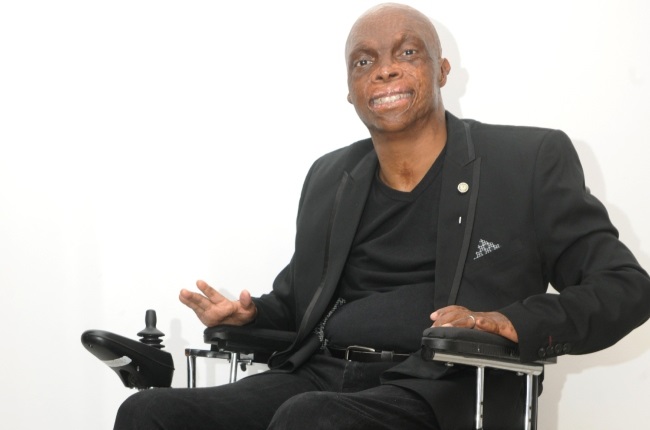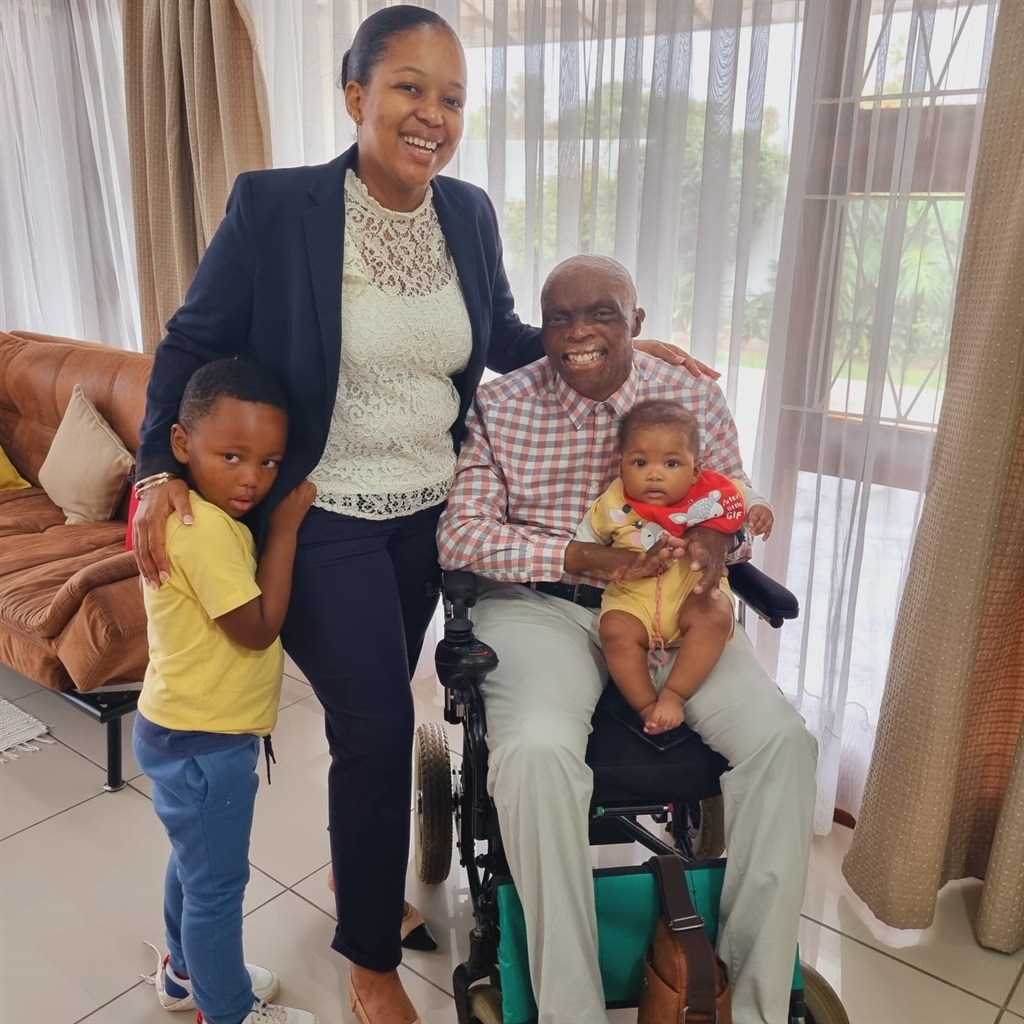
It’s so easy to feel sorry for yourself once you have been through a traumatic and life-changing experience.
But it was the lecture he got from his mother as a six-year-old that really set him up for life.
It’s the year 1990, and young Msimelelo Boltina goes to spend the night with his older brother who was in the bush, undergoing the Xhosa traditional rite of passage into manhood of ulwaluko.
In the early hours of that December morning, his brother's hut (ibhoma) caught fire with him sleeping inside.
“Bhuti was outside with the other initiates. I don’t remember much, but I do remember waking up to fighting flames. The plastic seals in the hut had fallen on me. My brother had to garner the courage to get in there to fetch me. His hands, face and legs were burnt.
“His burns were not as deep as mine. I was wearing tracksuit pants and surprisingly they stayed in tacked. My face, head, hands and feet were burnt.”
Little Msimelelo spent the rest of December in hospital, and he was only discharged in July of the following year.
When he arrived home, his mother gave him a talk that would help him face all of life’s adversities that were still coming his way.
“She sat me down and told me that people were going to talk about me, some out of disgust, others out of pity. She said people, young and old, would say mean things, but that I should remember that I would not become the things they said just because they said them.
Read more | Mpumelelo Mhlongo's journey from stigma to Paralympian
“Life and being integrated back into school was not easy. But mama had warned me that this would happen. I held my head high, and my books became my friends. As time went on, people at school started getting close to me because I was the smart kid in class.”
He blossomed when he moved from his Gqeberha hometown to Rhodes University in Makhanda to read for a BCom (accounting).
“I became a social butterfly,” he jokes.
“Suddenly my books were no longer my only focus. I got involved in student politics and I even tried my hand at DJ’ing. But I quickly saw that was not my thing. My parents were not happy with my marks, and I had to go back home.
“I went to the then University of Port Elizabeth to complete my degree and they told me I had to finance my studies myself. I then got a job at small Standard Bank branch in Motherwell. I would work in the mornings and attend classes at night. There is nothing like funding your own studies to motivate you.”
He then completed his degree and went on to work at KPMG and then later at VW.
At VW, he worked in the finance department and drove the flashiest Jetta of the time in 2009.
His mother then asked him to accompany her to a family funeral and after the funeral the cousins decided to hang out. When they had arrived at a place where they were going to drink, they heard there was a party in Bluewater Bay and they decided to go there instead.
On the way, Msimelelo was involved in a car crash that would change his life. He became a quadriplegic.
“We were still sober, going to drink at the party. I was driving alone in my car, and we had a convoy of about four cars. I do not remember how the accident happened, except that I was swerving to avoid crashing into a taxi that had suddenly driven in front of me.
“I swerved and lost control of the car. It rolled a couple of times and even though I was wearing a seatbelt, I was ejected through the windscreen.
“I remember being in and out of consciousness and lots of people talking over me. I was panicking because the paramedics kept asking if I could feel this and that, but I couldn’t feel anything. I woke up two weeks later in hospital.”
Msimelelo’s older brother, Sipho, had grown up to be a medical doctor and he had a practice in Lusikisiki. Sipho closed his practice to by his brother’s side.
Read more | Deaf app developers given a springboard through iSchoolAfrica
“When I woke up, I was told that they had to put me in an induced coma because of the brain swelling. A few days after I had woken up, the doctor came to tell me that I was paralyzed. I would not accept anything he said, and I kept asking for my brother.
“My brother was then brought, and he explained my injuries. He explained what had been done and what had to be done to ensure that I would be functional. It was not the best of days.”
He was hospitalised for a month before he was transferred to a rehabilitation centre, where he spent four months. In that time, his family would visit, and his father was the hardest hit.
“Tata really struggled with my situation. I was never going to walk again, and I am the same son who already almost burned to death. He was the hardest hit. My mother tried to put on a brave face.”
While Msimelelo was in hospital, his family did renovations to his backyard flat and refurnished it so that would have comfortable living space.
“At the time, I did not see it as a privilege that my family was able to do those modifications that other patients do not have when they come home. My fingers are straight and stiff, so I could not even grab anything. I had to have a caregiver with me 24/7.”
As Msimelelo (now 41) was trying to put his life together, he faced other challenges, including his girlfriend of four years breaking up with him via email.
“I could not be mad at her because my new situation was not something she signed up for. Yes, we had spoken about marriage and children, but the reality of needing 24-hour care is a lot.
“When I felt ready to go back to work, my employer told me I had been replaced. While I was in hospital, a company representative came to see me and told me I would receive the disability benefit which meant I would get 75% while at home, and they sent me a car, a caddy. When I wanted my job back, I was told the company had to find a replacement, but that I would continue to get the benefits until I found another job.”
Msimelelo decided to further studies and do his honours, but that had its own challenges.
“I had to relearn how to learn. Because I could no longer write and turn the pages in a book, I asked Unisa for assistance, and they put me in program with other disabled students and I got e-books instead.”
He is now a forensic auditor.
He has three caregivers. One to deal with anything personal, from grooming and everything to do with him as a person. The second does the administrative work, including the driving. They are both male. And the third is the domesticated one, a female, who does the cooking and cleaning. She is also his children’s nanny.
He was in a relationship at the time of the accident, but there was another girl that he liked.
“I had asked Somikazi out, and she rejected me because we were both with other people at the time. After the accident, while at home, I opened a Facebook because I was bored. Somikazi was one of the people suggested to me. I sent her a DM and we never looked back from there.
“After chatting for a while, I invited her to visit me and to my surprise, she had done so much research about my condition. She saw me, beyond my disability.
“We made our relationship official in 2010 and we got married in 2014. In our household, the duties that are traditionally a man’s job are still mine even though I’m in a chair. A lightbulb, broken cupboard or a faulty car are all my responsibility. I decide what HR mechanism I use to fix the problem. My disability is not the centre of our relationship. She told me she still needs me to step up as a man, despite my disability. I love that. It makes me feel good.”
Soon after his accident, Msimelelo’s brother told him that in the long term, his sperm would swim backwards, and the quality would deteriorate. He then froze his sperm.
He and his wife had their first child by adoption and the second via IVF.
“People think you can never have a quality of life because you are disabled. And that is not true. Nothing that is supposed to happen in my bedroom does not happen. I am active in my children’s lives, and I am able to work and contribute to society. I resuscitated my dreams from before the accident and I live my life to the fullest.”
He now has a self-published book, Baptised In Fire.
It is available on Takealot and Amazon and a hardcopy and an e-book.
“A sense of humour is important. It helps to deal with everything. The reality is that I am not immune to further flames. Life can still be harsh, but it is important to still find pockets of happiness through it all.”




















